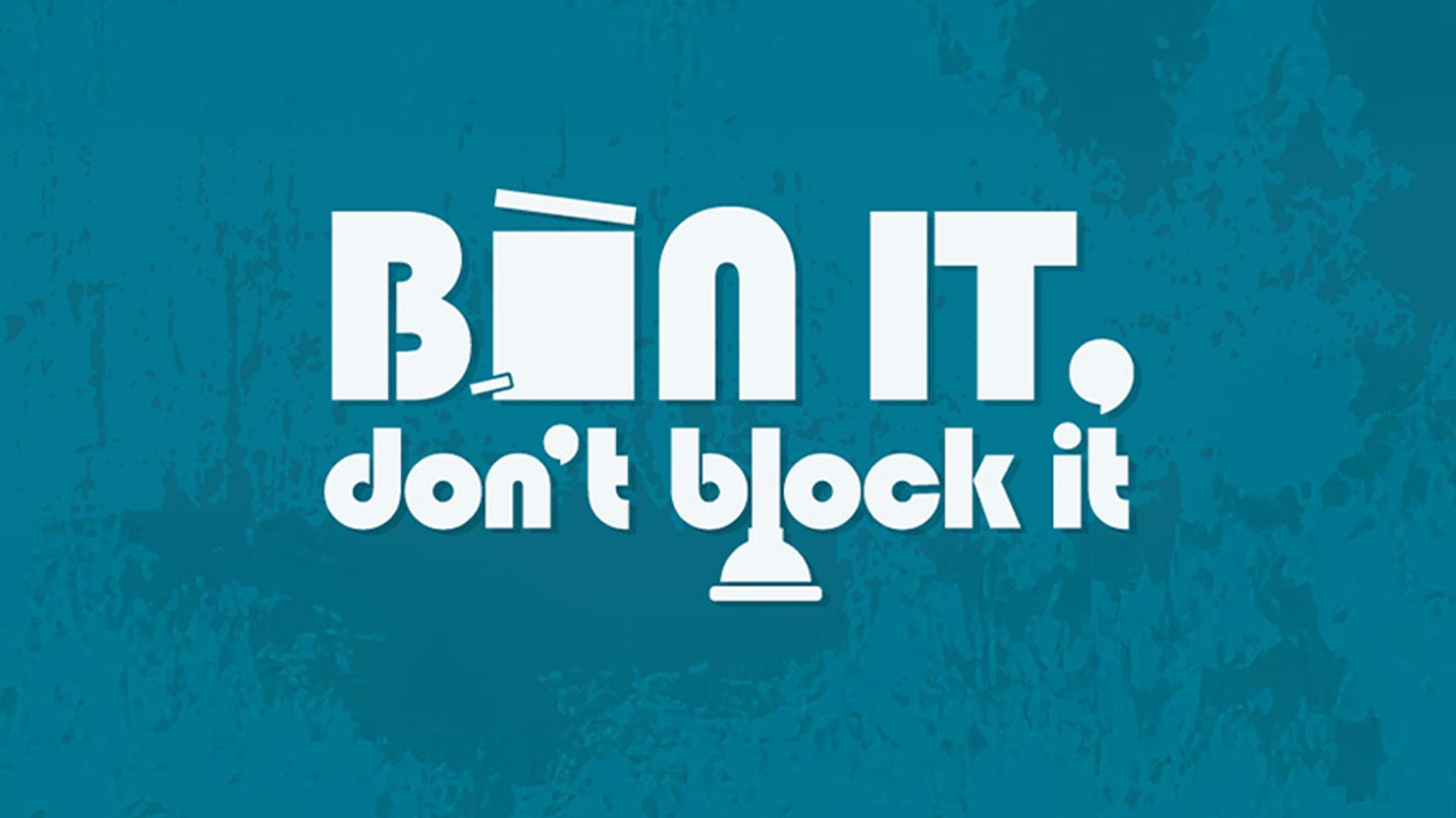Something scary could be lurking in your neighbourhood this October – but it’s not a Halloween ghoul. Sewer blockages can cause scenes that would rival any horror movie; here’s how you can help prevent them.
Why do drains get blocked?
Most of the pipes that take waste from your home are only about 15cm across – which isn’t very big at all. When the wrong things get flushed or oily stuff is tipped down the drain, pipes can get blocked up with a smelly mixture of mushed up waste and fat.
The telltale sign of a gurgling sink or bubbling toilet suggests there’s a blockage on the pipes. Or it might be a stinky puddle forming in the garden to suggest that things are not flowing as they should in the drains.
If you’re really unlucky, you could experience internal sewer flooding – an overflowing toilet, or a sink that backs up and spills wastewater into your home, garden or neighbourhood.
It’s horrible. It stinks. It could cost you hundreds of pounds to sort out. And it’s easy to avoid.
Bin it, don’t block it
The way to prevent blocked pipes is simple: be careful what you put down the sink or the toilet. Only flush the 3Ps (pee, poo and paper) – everything else goes in the bin. This includes wet wipes (even if they say they’re biodegradable), period products, nappies, cotton buds, and make up pads.
In the kitchen, the main culprit is fatty stuff – oil, grease, lard, butter, gravy, custard, cream – if it makes your hands greasy, it should go in the bin. To do this, you can either wipe excess oil from pots and pans with kitchen paper or leave it to cool then scrape or pour it into another pot and bin it.
You should also make sure food scraps go in the bin – a sink strainer helps get the smaller bits, so they don’t go down the plughole. While it’s something you won’t have every day, DIY waste (leftover paint, plaster, wallpaper paste etc) can easily block pipes. Check your local waste facilities for safe disposal options of this waste.
The fatberg busters
If you put the wrong things into the sewer, it can also cause problems far from your home. In the main sewer, all the bits of fat, wipes and rubbish can combine to form a colossal sewer monster: the fatberg.
You’ve probably seen fatbergs on the news. If you think the sight of one is memorable enough, you’ve never smelled one – let’s just say it’s very, very bad. Our fatberg-busting teams carry out routine cleansing and jetting to blast these bergs before they can cause too much of a problem – but every now and again, the fatbergs win. You may be amazed by the size of some of the fatbergs we’ve successfully removed from our sewers. In Sidmouth, workers spent eight weeks breaking up 64 metres of congealed fat, oil and wet wipes, and in Plymouth teams removed a fatberg the same length as the height of the Arc de Triomphe.
If a fatberg gets too big, waste can’t get past, so it backs up and overflows, or triggers a storm overflow to operate because there’s nowhere else for the waste to go. This can cause pollution to local streams and rivers as well as issues like roadworks and traffic jams while we sort the problem out. In the past year, South West Water has cleared over 7,000 blockages from the network, and around 75% of those were made up of wet wipes and fat.
We pick up on hotspots for sewer blockages and help to find solutions. Often, this means working with local food businesses to make sure they have the right grease traps and processes to dispose of fat and oil responsibly. Our partners ECAS have worked with over 2,000 food and service businesses to date to help reduce blockages.
You can play your part in reducing sewer blockages by:
- Only flushing the 3Ps – pee, poo, and paper. Everything else belongs in the bin.
- Don’t pour fats, oils or grease down sinks. Let them cool, scrape or pour them into a container, and put them in your food waste bin.
- Food businesses should install and maintain grease-trapping equipment to stop FOGs from entering the sewer network and adopt good kitchen habits like dry-wiping dirty pots and plates into a bin before putting them in the dishwasher.
Find out more on our Bin it, don’t block it webpage.
